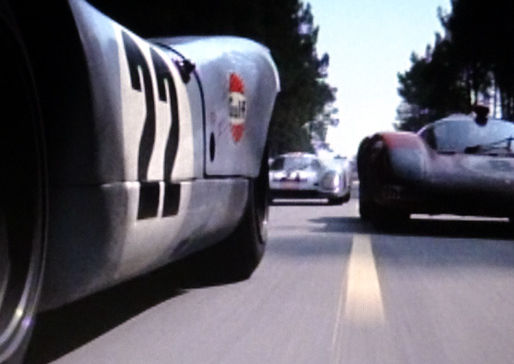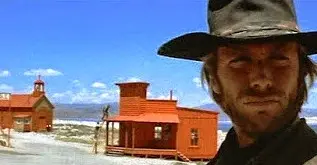top of page
Search
1970's
Classic Films from the 1970's


The Parallax View (1974)
Alan J. Pakula’s The Parallax View (1974) is a chilling masterpiece of American paranoia cinema—a film that captures the dread, disillusionment, and institutional mistrust that defined the post-Watergate, post-JFK era. Sandwiched between Klute (1971) and All the President’s Men (1976), it forms the central entry in Pakula’s unofficial “paranoia trilogy,” and is perhaps the most stylistically daring and psychologically disturbing of the three.

Soames Inscker
5 min read


The American Friend (1977)
Wim Wenders’ The American Friend (1977) is a haunting and hypnotic meditation on identity, corruption, and fatal friendship, filtered through the distinctive lens of 1970s European cinema. Loosely adapted from Patricia Highsmith’s Ripley’s Game, the film represents an idiosyncratic and atmospheric take on the psychological thriller, prioritizing mood over momentum, and moral ambiguity over action.

Soames Inscker
5 min read


Play Misty For Me (1971)
Clint Eastwood’s directorial debut, Play Misty for Me (1971), is a taut, unnerving psychological thriller that helped usher in a new era of American cinema in the 1970s—where violence, sexuality, and psychological instability were explored with a rawness previously rare in mainstream film.

Soames Inscker
5 min read


The Tenant (1976)
Roman Polanski’s The Tenant (Le Locataire, 1976) is a slow-burning psychological horror film that crawls under your skin and lingers long after the credits roll. The third entry in what has been retrospectively dubbed Polanski’s “Apartment Trilogy” (following Repulsion [1965] and Rosemary’s Baby [1968]), The Tenant is perhaps the most subtle and unsettling of the three.

Soames Inscker
4 min read


Watership Down (1978)
When Watership Down was released in 1978, British audiences were offered something that animation had rarely attempted at the time: a meditative, often brutal, deeply lyrical tale about survival and freedom—told through the eyes of rabbits.

Soames Inscker
5 min read


Le Mans (1971)
Le Mans (1971) is a film unlike many others in the racing genre. Instead of taking a conventional narrative route, it offers a meditative, immersive experience of the famous 24 Hours of Le Mans endurance race held in France.

Soames Inscker
4 min read


Skyjacked (1972)
In the golden age of 1970s disaster films—where ordinary people faced extraordinary circumstances—Skyjacked (1972) soared into theatres as one of the earlier examples of aviation thrillers that would culminate in genre landmarks like Airport (1970) and Airport '75.

Soames Inscker
5 min read


Midway (1976)
Midway (1976) is an ambitious World War II epic that dramatizes the U.S. Navy’s stunning victory over the Imperial Japanese Navy at the Battle of Midway, a critical turning point in the Pacific Theatre. Riding on the coattails of the 1970s revival in large-scale war films (following hits like Tora! Tora! Tora!), Midway assembled an all-star cast and employed extensive archival footage to bring the historic events of June 1942 to life.

Soames Inscker
4 min read


The Railway Children (1970)
The Railway Children is a beloved British family film adapted from Edith Nesbit’s classic children’s novel. The story centres on the lives of three siblings — Roberta (Bobbie), Peter, and Phyllis — who, along with their mother, move from London to a quaint house near a railway after their father mysteriously disappears and is presumed imprisoned for a crime he did not commit.

Soames Inscker
3 min read


Kelly's Heroes (1970)
Released in 1970, Kelly’s Heroes stands as one of the most peculiar and entertaining war films ever made—a mash-up of gritty World War II action, heist movie caper, anti-authoritarian satire, and irreverent comedy. Directed by Brian G. Hutton, who previously helmed the more traditional WWII thriller Where Eagles Dare (1968), Kelly’s Heroes offers a tonal shift from straightforward valour to something far more subversive and eccentric.

Soames Inscker
5 min read


Don't Look Now (1973)
Nicolas Roeg’s Don’t Look Now (1973) is a film that defies easy categorization. Ostensibly a supernatural thriller or horror story, it is, at its core, a harrowing meditation on grief, trauma, and the instability of perception.

Soames Inscker
5 min read


Scarecrow (1973)
In the pantheon of 1970s American film—a decade dominated by gritty realism, moral ambiguity, and character-driven storytelling—Scarecrow (1973) stands as one of its most understated, poignant, and sadly overlooked works.

Soames Inscker
4 min read


High Plains Drifter (1973)
High Plains Drifter is Clint Eastwood’s second directorial feature, following Play Misty for Me (1971), and it is arguably one of his boldest early works. On the surface, it is a revenge Western in the tradition of Sergio Leone’s spaghetti Westerns, but it quickly reveals itself to be something darker, stranger, and more allegorical.

Soames Inscker
4 min read


The Conversation (1974)
Francis Ford Coppola’s The Conversation is a taut, cerebral thriller that explores the intersection of surveillance, privacy, guilt, and paranoia in post-Watergate America. Released between Coppola’s two Godfather films, this small, character-driven movie is a masterclass in restraint and psychological tension.

Soames Inscker
4 min read


Loguns Run (1976)
Logan’s Run (1976) is a landmark of 1970s science fiction cinema—an ambitious, visually inventive, and thematically rich dystopian adventure. Released a year before Star Wars, it arrived at the tail end of an era when sci-fi was used not to thrill with action, but to provoke thought. Set in a future society where youth is preserved and death comes by design at the age of 30, Logan’s Run explores hedonism, social control, and the search for authenticity in a sterile, controlle

Soames Inscker
5 min read


The Omega Man (1971)
The Omega Man (1971) is the second and perhaps most culturally emblematic adaptation of Richard Matheson’s influential novel I Am Legend. Starring Charlton Heston at the peak of his post-Planet of the Apes career, the film blends dystopian science fiction, action thriller, Cold War paranoia, and a touch of countercultural sentiment.

Soames Inscker
5 min read


The Heartbreak Kid (1972)
The Heartbreak Kid (1972) is a landmark of American dark comedy, a film that balances pathos and satire with unnerving precision. Directed by Elaine May and written by Neil Simon—adapting Bruce Jay Friedman’s short story “A Change of Plan”—this is not your average romantic comedy.

Soames Inscker
5 min read


National Lampoons Animal House (1978)
National Lampoon’s Animal House (1978) isn’t just a movie—it’s a cultural milestone. Directed by John Landis and co-written by comedy legends Harold Ramis and Douglas Kenney, the film marked the big-screen debut of the National Lampoon brand and redefined college comedy for a generation.

Soames Inscker
5 min read


There Was a Crooked Man… (1970)
There Was a Crooked Man… (1970) is a unique and subversive entry in the Western genre, directed by the veteran filmmaker Joseph L. Mankiewicz in his final directorial effort. Written by Bonnie and Clyde scribes David Newman and Robert Benton, the film straddles the line between traditional Western iconography and the dark, ironic revisionism that defined the genre during the late 1960s and early '70s.

Soames Inscker
5 min read


Star Trek: The Motion Picture (1979)
When Star Trek: The Motion Picture premiered in December 1979, it arrived with the immense burden of expectation. Riding the wave of sci-fi popularity in the wake of Star Wars (1977), and propelled by the enduring cult success of the original Star Trek television series (1966–69), Paramount envisioned a grand cinematic rebirth for Gene Roddenberry’s universe.

Soames Inscker
5 min read
bottom of page


